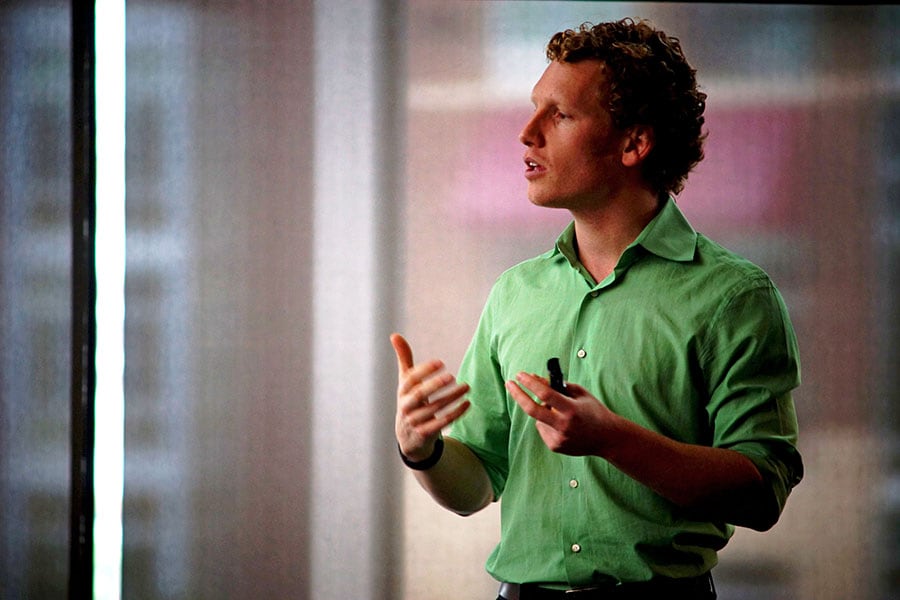
Talking more abstractly helps startups raise funds: Jonah Berger of Wharton
Why turn shoulds into coulds, when 'don't' is better than 'can't', the power of 'because', the right way to say 'no'...
 Jonah Berger, author and marketing professor at the Wharton School of the University of Pennsylvania
Jonah Berger, author and marketing professor at the Wharton School of the University of Pennsylvania
In his new book Magic Words: What to Say to Get Your Way, Jonah Berger, author and marketing professor at the Wharton School of the University of Pennsylvania, talks about the hidden science behind language and how to use it effectively to change minds, engage audiences, and drive action.
Q. What are the fresh insights into language that led to planning this book?
We use language all the time—whether we are writing emails, putting together presentations, calling clients, or talking to colleagues or bosses. Even our private thoughts rely on language. But while we spend a lot of time thinking what we want to get across, we think a lot less about the specific style or words we use to communicate our ideas. That is a mistake because subtle shifts in language can have a big impact. For instance, our research has shown that saying “I recommend a product” rather than “I like a product” makes others a third more likely to take our suggestion. From the language we use in office emails to that we use while applying for a loan, they provide important information about who we are and how we are likely to behave in the future.
The key question is: What are these magic words and how can we take advantage of their power? There have been some amazing changes in the availability of language now. We produced language all the time but now it is all being recorded. There are also new technologies to extract insights from language data. Tools like machine learning, natural language processing, and automated textual analysis, combined with the digitisation of everything from cover letters to conversations, allow us to analyse language and learn more and more about what people are saying and why. These are some of the foundations on which this new book has been built.
Q. What scope does language data hold for businesses?







